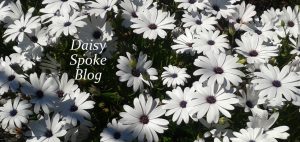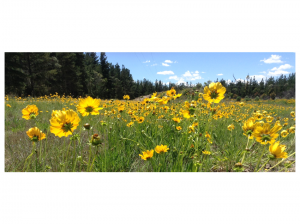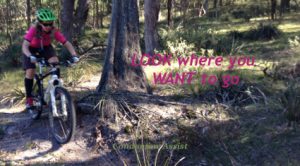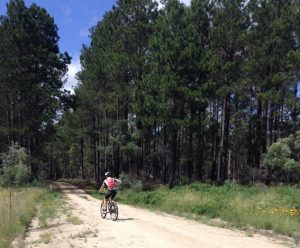Transcript from the podcast “Speak Out Loud: Stories of Strength from the Southern Downs”
SEASON 2: EPISODE 12
GUEST: Jessica Carey
PUBLISHED: 4th April 2022
[00:00:00] Jessica: When we work on our mindset, when we work on our emotional resilience, when we’re connected to nature and when we’re moving our body, it actually shifts energy. It moves and creates change. And I think within anything to do with movement, it is creating change not only on a physical level, but with your mental health, also with your emotional wellbeing, which are all part of being a human, like when we’re very multifaceted and it’s not a one size fits all thing. It’s about choosing what works for you and, what makes you feel good. And I think that’s really important.
[00:00:42] Kathryn: My guest today is Jessica Carey. Jessica’s deep connection with the Southern Downs Region goes back six generations. In our conversation, we chat about the cycles and the seasons in nature, and that by choosing your mindset and your actions, you also choose to build your personal strength and resilience and this positions you in a much better place to manage the changes, the cycles and the seasons in life. Jessica also shares in this episode, her love of physical activity and sport, and the many opportunities across the region for joining in structured activities like sport, as well as unstructured leisure activities such as bushwalking that gets you connected with nature. Our conversation reflects many of the themes that we’ve explored in Season Two and I’m sure it will inspire you to get out there and get active.
Hello, Jessica. Welcome to the podcast.
[00:01:46] Jessica: Hi Kathryn. Thanks so much for having me.
[00:01:48] Kathryn: Can you tell our listeners what your connection is with the Southern Downs?
[00:01:53] Jessica: My connection with the Southern Downs is very much family-based. So I’ve grown up in the region and I have six generations back, uh, on both sides of my lineage and family line in the Yangan and Emu Vale area.
[00:02:08] Kathryn: During the drought which we had over several years, and that was followed up by the bush fires in 2019 and 2020, I spoke with a lot of people about their experiences. And some words that were commonly used were devastation, hopelessness, and despair. And so clearly for many people, those were really tough times. But at that time, I also recall having some conversations with you too. And you had a slightly different perspective, I’d have to say, which I really think must’ve helped to boost your resilience. You were speaking about the cycles and the seasons in nature and in life, and there are purposes and benefits to each of those cycles and seasons, even though they can be challenging. Could you share some of your thoughts on that perspective with us a little bit more?
[00:03:00] Jessica: I would love to. So in my profession I have a lot of conversations and I hear a lot of stories, uh, from really beautiful and happy memories to really hard times, um, being a hairdresser. Yeah, people are really vulnerable with you. So feelings of devastation and hopelessness and despair were definitely very common during that time and how I look at it from a psychological perspective and a cycles of nature perspective is that we have a life death life cycles. And that happens in nature, that happens within our bodies, our life, our inner world. So when we went through that really, really tough time, which many are still in, it was reflected back to us within what was going on in our internal world. It was really hard to see the devastation that the drought bought just like right now, the land is very fertile. So those cycles of nature are continuous. I have a lot of conversations with farmers and a lot of them are just very connected to those seasons, those cycles in nature. And I really like hearing those stories because it actually teaches us that there is always a time for these things, um, that nothing ever stays the same, that we are cyclic beings. And that what’s really important is to learn how to become resilient through some of those harder times, some of those tougher times in life, um, that we will all face at some time.
[00:04:23] Kathryn: So our thoughts and our attitudes can really have quite an impact on our resilience as well as the actions that we choose to take. Now, I know that you’re someone who highly values health and vitality and resilience. What are some of the choices that you make every day that keeps you feeling strong?
[00:04:45] Jessica: I love this question, Kathryn. Health is one of my highest values because I believe without it, that we can’t actually make the choices from a really clear and vibrant space. So, uh, eating really well from the land from the earth is really important to me, whether that’s growing your own food or going to local farmer’s markets and sourcing locally and seasonally. Really good sleep cycles. I believe that’s really important in how I show up in the world every day is sleep is how our bodies heal. So that’s really important. Movement, so physical activity, whether that’s team sport, getting out in nature, doing a yoga class. Being still for a period of time within that movement is important as well. Being aware of your body. Having really nourishing relationships and being social is part of that as well, whether that is on a hike or team sport, or simply saying hello to my neighbour as they walk past. And having really clear desires and goals are another part of my life of working towards being a really, just the best version of myself in this life. I think that’s really important and I’m really connected to nature. I think we live in an incredible region where nature is at the forefront and I love being connected to her. I think it’s probably the thing that I love the most is, um, it connects to all those other things and it creates a really incredible foundation for the rest.
[00:06:12] Kathryn: And you’ve been involved with lots of different physical activities over the years that you’ve lived in the Southern Downs and even when you’ve gone abroad Jessica. What opportunities are there for people to get active on the Southern Downs?
[00:06:28] Jessica: Ah, where do I begin? There’s so many. I was brought up playing a lot of team sports, so I was involved with netball and touch football um, in particular. I was into athletics and swimming as well. And I’ve always done some type of gym work. So, there is just so many depending on where you want to start. You can pick your team sports, you can pick your individual sports. You’ve got incredible gym facilities in the region. You’ve got, um, some of your unstructured sports, like you’ve got your mountain biking, orienteering so many, so it really depends on the way that you want to move your body, but we are an incredible region, that offers so much for getting outdoors and yeah, just seeing what we’ve got on offer.
[00:07:10] Kathryn: So with so many opportunities out there, how can people find out about what’s out there if they are starting from not doing anything, they don’t know what’s available to them, how can they get connected?
[00:07:27] Jessica: I would say first port of call is talk to people. I think within anything in a small country town, it is asking the right questions and asking around. Secondly, using your social media apps. I think that everything is on there now uh, whether that’s your unstructured or your structured sport. I think, uh, using your hashtags is really powerful, especially on Instagram. So if you’re like hashtagging Southern Downs or Granite Belt, there’s a lot of people who explore this region that are tourists that love coming out here who share pictures and who share what they’re doing to get outdoors. It’s actually how I found a hiking group that I’m now involved in for 25 to 35 year olds in the Southeast Queensland and we do hikes and outdoor activities everywhere, but they also come here. So it’s how I found them. I found them through Instagram and I wanted to meet like-minded young people. Um, yeah, so there’s, there’s so many opportunities if you put yourself out there and aren’t afraid to, aren’t afraid to get a little bit vulnerable and put yourself out of your comfort zone. And the council website has a great foundation on there as well for a lot of facilities and a lot of ways that you can get connected in the region. And also just going to some of the like asking local businesses, go down the main street of any of the parts of our region and ask locals. Locals know what’s available. Um, you’ve got your outdoor sports shops. You’ve got your camping shops. They’re like they’re owned by locals. Locals love this region. They explore and get out there. You’ve got so many ways to find your resources, to get outdoors and love this region.
[00:09:01] Kathryn: What are your favorite ways to get active and why? What motivates you with those activities that you love to do the most?
[00:09:10] Jessica: My favourite ways to get active is I really enjoy hiking. I love experiencing nature in a way, uh, that I’m moving without actually feeling like I’m exercising. So it’s just comes naturally. And like, I can enjoy it with friends. I can also enjoy it solo. I feel really connected when I’m with nature, when I’m in immersed in nature. And when I can experience what what’s on offer there. So for me, it’s, that would be my foundational one. And then I also really enjoy team sport because it’s social. I really, really, I think team sports are really great, great way to flourish. And, um, couple of nights a week for that for me is, um, gives me a good people fix and I can move my body, do some cardio and head home.
[00:10:00] Kathryn: Those places that you like to go hiking, Jessica, could you tell us a little bit more about them?
[00:10:06] Jessica: Oh yes. So my favorite place to go hiking in this region is Girraween National Park. I that’s my local stomping ground. Anyone that I meet in hiking groups, that’s they’re like, Oh, you’re so close to Girraween. And I’m like, yes. Yes I am. And there’s something about that granite in that region in Stanthorpe that has so much on offer, not only for just hiking, but so many other outdoor activities. Yes so that is an incredible part. I also love just going out to Killarney. Leslie Dam’s got some really incredible spots as well. I love watching a sunset out there and, uh, yeah, there’s just so many snippets of this region, but definitely Girraween National Park is something that is very much sought after by most people I meet in a lot of parts of Australia.
[00:10:57] Kathryn: For people who are living in town or maybe don’t have that transport to get out to some of those National Parks, some of those big open spaces like that, what would there be for someone say who’s in Warwick or Allora or in Stanthorpe?
[00:11:15] Jessica: Well, we have really incredible waterways in each of our towns and we have incredible walking tracks that are paths. They’re concreted and at the moment the water’s flowing beautifully. So there’s some really incredible river walks that are really flat, really accessible for children, for anyone who maybe their fitness isn’t up to going on a mountain. So I think our waterways in Warwick, Stanthorpe, Killarney, even, and, um, the centre of Stanthorpe are really incredible ways to start.
[00:11:43] Kathryn: Jessica, you also teach sport. Could you tell us a little bit more about that role that you have?
[00:11:51] Jessica: Uh, yes. So on through the summer I teach swimming. So I swam for a number of years and I believe it’s a life skill that everybody should have, whether that’s swimming in a pool, the beach, or skiing out at the dam, whatever it is, it’s one of those life skills that I believe are really important. So yeah. I love teaching kids swimming. It’s really fun. It’s, I love seeing their development. And I love seeing how they grow in confidence and build body awareness. And it’s something they can take for the rest of their life, which is really fun.
[00:12:25] Kathryn: And I imagine that even for adults who may want to learn to swim, that there are opportunities for them as well. Or it might not be swimming. It might be adults who want to have a go at a new sport that they haven’t done before.
[00:12:39] Jessica: Oh, absolutely. Most of the clubs in town, like most of your team sports or even your local gyms are always providing opportunities for you to move your body and get active and meet people. And yeah, I think you just need to ask around and find one that suits you. And there’s always incredible, incredible ways that you can get moving, get outside and umm move your body.
[00:13:01] Kathryn: For somebody who maybe doesn’t move a real lot, maybe isn’t really physically active, perhaps they have some pain or they haven’t had as many opportunities as somebody else to get involved with sport, or maybe they find it really hard to find the time to do that, what advice would you have for that person?
[00:13:23] Jessica: I would say start small. I think with anything with movement over my entire life, it’s been about setting a goal and slowly working towards it and being really kind and compassionate with yourself because all things take time. And I think resilience is a part of that. It’s nothing happens overnight. So you’ve got the river walks, as I mentioned earlier. And then you’ve also got some of the tracks that are in our region, whether that’s Queen Mary Falls or you’ve got a beautiful track at Girraween called Granite Arch, you know, they’re, they’re very gentle tracks for beginners and a way to move your body in a very short amount of time. But a lot of it’s mindset. A lot of it’s working towards something, knowing why you do it and being intentional about it. I think intention behind anything that you choose to do is really vital.
[00:14:13] Kathryn: Jessica, is there anything else that you’d like to share with us about that power of mindset or choosing to be active and getting connected with our community?
[00:14:24] Jessica: Absolutely. So whether it’s our mindset, how we choose to move our body or getting connected with others, it’s all about how we choose to show up in the world. You know, when we work on our mindset, when we work on our emotional resilience, when we’re connected to nature and when we’re moving our body, it actually shifts energy. It moves and creates change. And I think within anything to do with movement, it is creating change not only on a physical level, but with your mental health, also with your emotional wellbeing, which are all part of being a human, like when we’re very multifaceted and it’s not a one size fits all thing. It’s about choosing what works for you and, what makes you feel good. And I think that’s really important. If you’re flogging yourself to do something, it’s not sustainable. And I think like anything in nature, things need to be sustainable. So again, coming back to connection with nature and connection to cycles, it’s really important that we treat ourselves with love, respect, and compassion. And when we do that, that’s reflected around us as well.
[00:15:27] Kathryn: We mentioned before that you had travelled abroad. Could you tell us a little bit about what you were doing when you were overseas and how that’s relevant for us here on the Southern Downs?
[00:15:40] Jessica: Yes, I would love to. So a couple of years ago I went and lived in Canada for a short period of time. And I worked at a summer camp in BC. So I was working with children in the outdoors doing structured and unstructured movement and leadership. And it was an incredible time in my life. I believe this region is so similar to parts of BC in Canada. Every time I come back through Stanthorpe after being at Girraween, I just, my heart just takes me back to that time. We have so much opportunity in this region and for what’s available to explore, get out doors, be connected, go mountain biking, hiking, not just your team sports. We just have an incredible resource here in, on the Southern Downs. And I’m very passionate about getting people out doors, getting people moving and showing what is on offer in this beautiful region we call home.
[00:16:38] Kathryn: And we started putting together a list of those sports and those unstructured activities which we have access to here on the Southern Downs. And I’m sure that there are many more that we haven’t even thought of but that’s quite some list, isn’t it?
[00:16:51] Jessica: Oh yeah. There’s oh, from orienteering to tobogganing, soccer, netball, volleyball, water polo. You know, we’ve got our gyms, Pilates, yoga, National Parks. You can walk the dog, basketball, like it just, the list goes on whether it’s trials, whether it’s team sport or whether it’s individual, there’s literally something on offer for everybody, especially in a, in a beautiful country town.
[00:17:16] Kathryn: How can listeners contact you if they’d like to find out a little bit more about what you’ve been talking about today?
[00:17:23] Jessica: So I have a website. It is www.jessicacarey.com.au. I have a contact email that is accessible there, and I have social media. So I have an Instagram account, which is underscore Jessica Carey and Facebook is Arise with Jessica Carey. You can find me pretty easily. So yeah.
[00:17:44] Kathryn: Thanks for listening to the Speak Out Loud Stories of Strength podcast with me, Kathryn Walton. I hope this episode inspires you to get involved and to get connected with your community. You can find the transcript and any links mentioned in this episode, in the show notes and please share the podcast with your friends.
We acknowledge and pay respect to the past, present and future Traditional Custodians and Elders of this nation and the continuation of cultural, spiritual, and educational practices of Aboriginal and Torres Strait Islander peoples. Series Two of this podcast has been jointly funded under the Commonwealth and State Disaster Recovery Funding Arrangements 2018.
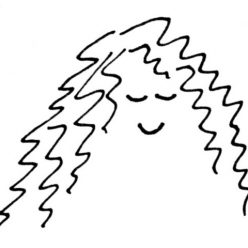
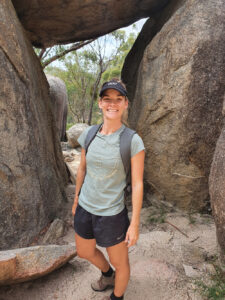
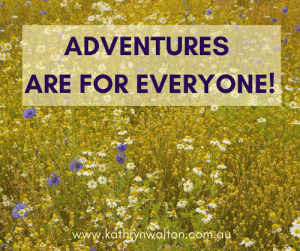
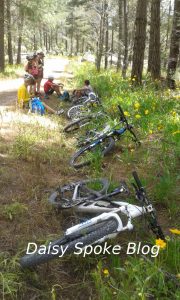
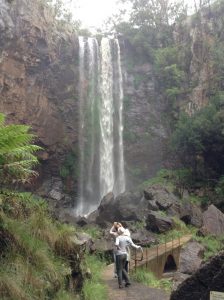

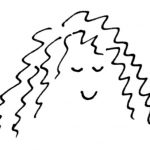

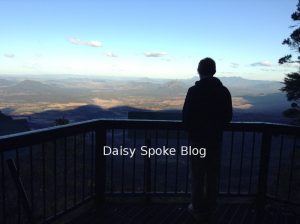 There is growing concern for obesity and other conditions related to sedentary behaviour including chronic illness and poor mental health. Apart from the obvious burden on the nation’s economy, the real burden of poor health is lived out and carried everyday by individuals, families and communities. As a community, I believe we need to creatively explore the possibilities when it comes to getting people active, and not expect individuals to slot into the pre-existing boxes for engaging with physical activities.
There is growing concern for obesity and other conditions related to sedentary behaviour including chronic illness and poor mental health. Apart from the obvious burden on the nation’s economy, the real burden of poor health is lived out and carried everyday by individuals, families and communities. As a community, I believe we need to creatively explore the possibilities when it comes to getting people active, and not expect individuals to slot into the pre-existing boxes for engaging with physical activities.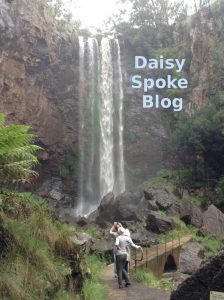 Rural and regional Australia has poorer health outcomes than its urban counterparts, so I’m really keen to make a constructive contribution to the health and wellbeing of my community on the southern Darling Downs, and to encourage women and girls to creatively construct systems and routines so they can enjoy being more active.
Rural and regional Australia has poorer health outcomes than its urban counterparts, so I’m really keen to make a constructive contribution to the health and wellbeing of my community on the southern Darling Downs, and to encourage women and girls to creatively construct systems and routines so they can enjoy being more active.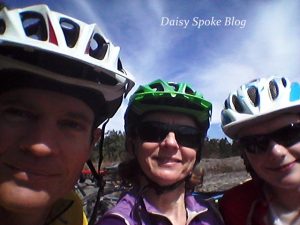 needs – not only women. Times they are a changin’ and the best time for change is now. I’d love to hear ideas from everyone regardless of gender:
needs – not only women. Times they are a changin’ and the best time for change is now. I’d love to hear ideas from everyone regardless of gender: